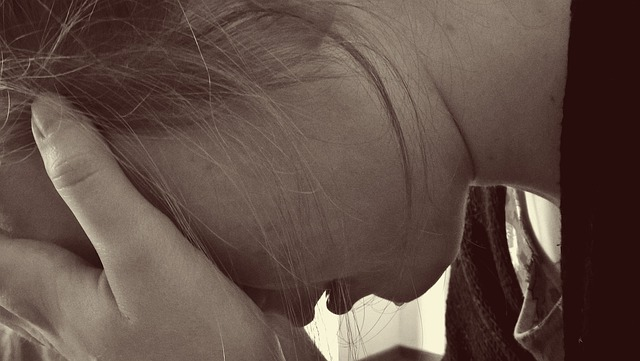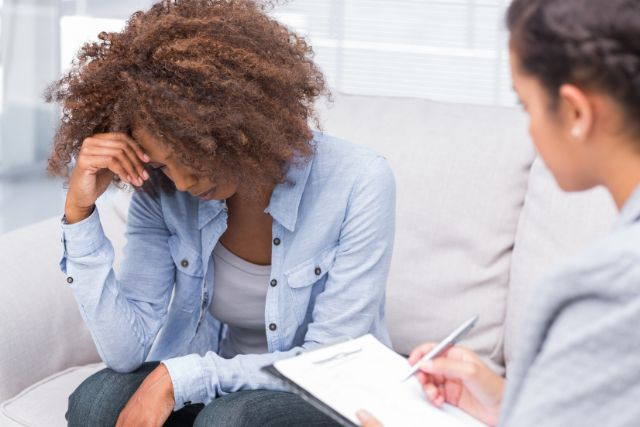FREE US SHIPPING FOR ORDERS $100+
FREE US SHIPPING FOR ORDERS $100+
Add description, images, menus and links to your mega menu
A column with no settings can be used as a spacer
Link to your collections, sales and even external links
Add up to five columns
Add description, images, menus and links to your mega menu
A column with no settings can be used as a spacer
Link to your collections, sales and even external links
Add up to five columns
Grief and Sleep: Strategies to Get a Good Night's Rest After Loss
June 12, 2023 11 min read

In the wake of losing my faithful companion, Essie, I found myself caught in a web of grief and sleeplessness. Nights that were once filled with warmth and contentment became restless and filled with anguish.
As I struggled to get just a bit of respite from my sadness, I discovered the profound connection between grief and sleep, and the challenges it presents.
Grief is an overwhelming experience, and it can take a toll on every aspect of our lives. I was surprised to find out how much it affected me after losing my beloved fur baby.
Perhaps you're finding yourself in a similar situation after losing a loved one or special pet. Maybe you're struggling just to get in an hour or two of rest.
In this blog post, we'll explore the connection between grief and sleep, the impact of different types of grief on sleep, and various self-care practices and professional help options that can help you get a better night's rest while grieving.
My hope is that the tips offered here will help give you a solid plan for finally getting a good night's sleep.
Short Summary
-
Grief can lead to poor sleep quality, making it harder to cope with loss.
-
Strategies like establishing a consistent sleep schedule and seeking professional help may help manage grief-induced insomnia.
-
Self-care practices such as physical activity, nutrition/hydration and social support are essential for effectively managing grief and getting restful sleep.
The Connection Between Grief and Sleep

Grief can be a heavy burden to bear, and it often leads to insomnia and poor sleep quality, which in turn can make the grieving process even more difficult.
This is because grief can bring on physical and mental symptoms like anxiety, guilt, loneliness, and physical pain, all of which can take a toll on your sleep and cause trouble falling asleep.
It's a vicious cycle: the more trouble you have sleeping, the harder it can be to process and manage your grief. This can have serious repercussions on our mental health. Depression and anxiety are some of the common mental illnesses that could arise due to this increased risk.
Belinda Ginter, a mindset kinesiology expert, says that grief can sometimes be a comfort that helps you drift off soundly, but other times, it can hit just as your body relaxes and cause sleep disturbances that keep you up all night.
The impact of poor sleep on the grieving process can be profound, as it can exacerbate grief symptoms and make it more difficult to cope with the emotional pain associated with loss.
This is why it's crucial to address sleep issues during the grieving process and find ways to improve sleep quality.
Grief-Induced Insomnia
Grief-induced insomnia is a common symptom of grief and can lead to difficulty falling asleep and staying asleep. The intense emotions that accompany grief can create a lot of anxiety, making it hard to relax and get the rest you need.
Establishing a consistent sleep schedule and creating a calming bedtime routine are essential steps in tackling grief-induced insomnia. Taking care of your physical health with physical activity and exercise, eating well and staying hydrated, and connecting with supportive people can also help with getting better sleep while you're grieving.
But what if your grief-induced insomnia persists? Cognitive-behavioral therapy for insomnia (CBT-I) has been found to be effective in treating this type of sleep disturbance. CBT-I focuses on changing thoughts and behaviors that contribute to sleep problems, making it easier to fall asleep and stay asleep.
Additionally, seeking professional help through grief counseling and therapy can provide you with the tools and support needed to manage your grief and improve your sleep quality.
The Impact of Poor Sleep on Grieving
As previously mentioned, poor sleep can worsen grief and even increase the risk of developing mental health issues. Research has found that those who experience chronic sleep issues before a loss are more likely to develop complicated grief afterward. This highlights the importance of addressing sleep problems during the grieving process to promote better mental health and overall well-being.
To improve your sleep quality while grieving, it's essential to establish a sleep routine, manage intrusive thoughts and emotional pain, and create a relaxing sleep environment. Seeking professional help, such as grief counseling and therapy or support groups, can also provide the necessary guidance to manage grief in a healthy way.
By prioritizing sleep and addressing sleep issues head-on, you'll be better equipped to navigate the grieving process and ultimately find healing.
Types of Grief and Their Effects on Sleep

There are different types of grief, and their effects on sleep can vary. Some common types of grief include normal grief, anticipatory grief, chronic grief, abbreviated grief, traumatic grief, and absent grief.
In this section, we'll explore how these different types of grief can impact sleep and discuss strategies to help you get a good night's rest, no matter the type of grief you're experiencing.
Acute Grief and Sleep
Acute grief, also known as normal grief, can cause physical and mental symptoms that can interfere with a good night's sleep. These symptoms can include feelings of sadness, frequent crying, and difficulty sleeping. To manage acute grief and improve sleep, it's essential to establish a sleep routine, tackle intrusive emotional pain preoccupation head-on, and set up a calming sleep space.
Heart complications, such as heart attack and broken heart syndrome, are potential complications of acute grief. Therefore, attending to your sleep needs during this time is crucial for both your emotional and physical well-being. By prioritizing sleep and implementing the strategies mentioned earlier, you can better navigate the challenges of acute grief and support your overall health.
Complicated Grief and Sleep

Complicated grief is a syndrome that some people experience beyond the typical 6-month grieving period and is believed to be more similar to post-traumatic stress disorder (PTSD) than depression.
Studies have found that complicated grief is linked to shorter sleep duration and poorer sleep quality. This type of grief can lead to poor sleep quality, difficulty falling asleep, and increased dreaming about the deceased.
Individuals experiencing complicated grief may benefit from professional help, such as grief counseling and therapy or support groups.
Cognitive-behavioral therapy and interpersonal psychotherapy are two types of therapies that have been found to be effective for complicated grief.
Research has seen positive outcomes when these therapies are implemented. By seeking professional help and addressing sleep issues, those experiencing complicated grief can improve their sleep quality and better manage their emotional pain.
Sleep Strategies for Grieving Individuals

Now that we've explored the connection between grief and sleep and the different types of grief, let's dive into specific sleep strategies for grieving individuals. Establishing a sleep routine, managing intrusive thoughts and emotional pain, and creating a relaxing sleep environment can significantly improve sleep quality during this challenging time.
In the following sections, we'll discuss practical tips and strategies to help you implement these sleep strategies and get the rest you need while grieving.
Establishing a Sleep Routine
Establishing a sleep routine is essential for those who are grieving. Keeping a regular sleep schedule, creating a calming bedtime routine, and eliminating distractions from the bedroom are all important steps.
To help relax before bed, try reading a book, taking a warm bath, listening to soothing music, and avoiding electronics. Additionally, it's best to avoid caffeine after 3 PM and alcohol for at least 4 hours before bed.
Keeping a sleep journal can also be beneficial in dealing with sleep issues during the grieving process.
Tracking your sleep routines and sleep quality on a regular basis can help you identify any patterns or habits that may be leading to your sleep problems. This can be very useful to understand why your sleep may not be as restful as it should be.
This information can be valuable in making necessary changes to your sleep routine and improving your overall sleep quality.
Managing Intrusive Thoughts and Emotional Pain
Journaling for grief can be a helpful tool in managing intrusive thoughts and emotional pain before bed. By writing down any thoughts or feelings that might be keeping you up at night, you can release these emotions and make it easier to fall asleep.
After journaling, take a moment to imagine letting go of all your thoughts for the night. This simple practice can help create a sense of calm and relaxation, promoting better sleep.
Meditation can also be beneficial in improving sleep while grieving. Practicing relaxation techniques, such as relaxation meditation or progressive muscle relaxation, for 10 to 20 minutes before bed can help calm your nervous system and remind you that your emotions are ever-changing and will eventually pass.
There are several apps that can help with putting your mind at ease and help you to fall asleep. A few of my favorites are: Calm, Sleep with Me podcast, Aura and Balance.
By incorporating meditation into your bedtime routine, you can create a peaceful and relaxing atmosphere that promotes restful sleep.
Creating a Relaxing Sleep Environment
Creating a relaxing sleep environment involves setting up a space that's conducive to restful sleep. This means reducing noise, light, and temperature, staying away from electronic devices, and practicing relaxation techniques.
For example, consider using blackout curtains, a white noise machine, or a fan to minimize disruptions and create a more comfortable sleep environment.
While I've had a white noise machine for years, something I found really helpful to block out light and sound is a sleep mask with built in Bluetooth headphones. It's a great way for me to listen to soft music or a sleep meditation without bothering my husband who is often watching TV before bed.
Also, try to maintain a comfortable room temperature, as extreme temperatures can disrupt sleep. I've found a slightly cooler room helps me to sleep sounder, once I do fall asleep.
In addition to creating an optimal sleep environment, engaging in low-intensity exercises before bed can help improve sleep while grieving.
Activities such as yoga, walking, and hiking are great options for promoting relaxation and better sleep.
By incorporating these practices into your daily routine, you can help create a more restful and healing sleep experience during the grieving process.
Seeking Professional Help for Grief and Sleep Issues

Sometimes, self-care practices and sleep strategies may not be enough to manage grief and sleep issues effectively. In these cases, seeking professional help can provide the additional support and guidance needed to navigate the grieving process and improve sleep quality.
Grief counseling and therapy, support groups, medication and sleep aids are all professional help options that can be beneficial for those struggling with grief and sleep issues.
Grief Counseling and Therapy
Grief counseling and therapy is a form of psychotherapy that helps individuals process their grief and build strategies to manage their emotions. This type of therapy can be particularly beneficial for those experiencing complicated grief, as it can provide the necessary tools and support to manage grief in a healthy way.
Cognitive behavioral therapy and interpersonal psychotherapy have been recognized as beneficial for those with complicated grief.
Numerous studies have demonstrated their effectiveness in helping to manage this condition.
By seeking professional help through grief counseling and therapy, individuals can better address their sleep issues and learn how to cope with their grief in a healthy manner. This additional support can be invaluable in promoting better sleep quality and overall well-being during the grieving process.
Support Groups
Support groups are an excellent resource for those dealing with grief and sleep issues. These groups bring together individuals who have gone through similar experiences and offer emotional support and understanding.
By sharing personal experiences, feelings, and strategies for dealing with grief, support groups can provide a sense of community and connection that can be immensely helpful during the grieving process.
To find a grief support group near you, websites like GriefShare.org are a great online resource. By joining a support group or seeking therapy, you can gain the emotional support and understanding needed to manage your grief and improve your sleep quality.
Medication and Sleep Aids
When dealing with grief-induced insomnia and other sleep issues, medication and sleep aids can be helpful tools. Antidepressants, anti-anxiety medications, and sleep aids are often used to address grief-related sleep issues.
However, it's essential to consult with a professional to determine the best medication and dosage for you, as each individual's needs may vary.
Cognitive-behavioral therapy for insomnia (CBT-I) is another effective option for treating sleep disturbances caused by grief. By working with a professional to address sleep issues and implement appropriate medications or sleep aids, individuals can better manage their grief and improve their sleep quality.
Self-Care Practices for Grieving Individuals

Self-care is crucial during the grieving process, as it can help improve sleep quality and support overall well-being. By prioritizing physical activity and exercise, nutrition and hydration, and social support and connection, you can better manage your grief and maintain a healthy sleep routine.
In this section, we'll discuss practical tips and strategies to help you implement these self-care practices and get the rest you need while grieving.
Physical Activity and Exercise
Engaging in physical activity and exercise can be highly beneficial for grieving individuals. Exercise can help reduce stress, improve mood, and provide more energy. Activities such as yoga, running, walking, martial arts, and group fitness classes are excellent options for those who are grieving.
If you're looking for something simpler, tai chi and yoga are also great choices. It's essential to find activities and exercises that are appropriate for your needs and fitness level.
Remember to consult with a healthcare professional before starting any new exercise routine, especially if you're dealing with high blood pressure or other health issues.

Nutrition and Hydration
Proper nutrition and hydration are essential for those who are grieving. Eating a balanced diet and staying hydrated can help you get better sleep, manage stress, and have more energy. This includes eating plenty of fruits, vegetables, lean proteins, whole grains, and healthy fats, as well as drinking water, herbal teas, and low-sugar juices.
If your appetite has been lower due to grief, try eating small portions more frequently and focusing on nutrient-dense foods like fruits, vegetables, and lean proteins. This will help ensure your body gets the nutrients it needs and support your overall health during the grieving process.
Social Support and Connection
Having social support and connection can be invaluable for those who are grieving. Connecting with friends, family members, or joining a support group can help lessen feelings of loneliness and offer emotional solace during this difficult time. By sharing your experiences and emotions, you can gain understanding and advice from others who have had similar experiences.
Remember, it's essential to communicate your grief responses and seek support from those you trust. This can provide a sense of belonging and help you manage your grief in a healthy way.
By prioritizing social support and connection, you can improve your sleep quality and overall well-being during the grieving process.
Final Thoughts
Grief is an inevitable part of life, and its impact on sleep can be profound. By understanding the connection between grief and sleep, exploring different types of grief, and implementing various self-care practices and professional help options, you can improve your sleep quality and better manage your grief.
Remember, establishing a sleep routine, managing intrusive thoughts and emotional pain, creating a relaxing sleep environment, seeking professional help, and practicing self-care are all strategies that can help you get the rest you need while grieving.
In conclusion, your sleep is crucial during the grieving process, and you deserve to prioritize it. By taking these steps to improve your sleep and manage your grief, you'll be better equipped to navigate the challenges of loss and find healing in your journey. Sleep well and remember, you're not alone.
Frequently Asked Questions
Does grief affect your sleep?
Yes, grief can certainly affect your sleep. People who are grieving may take longer to fall asleep and wake up more frequently during the night, leading to a decreased quality of sleep overall.
Grief can also increase fatigue and make it difficult for people to feel fully rested and energized each day.
Do people sleep a lot when grieving?
It is understandable to want to sleep more when grieving. Experiencing a strong emotion such as grief can be both physically and mentally draining. It’s important to give yourself permission to rest, take breaks, and sleep as much as you need while you work through your feelings.
That said, it’s also important to maintain an appropriate balance in order to find healing.
Why do we sleep so much when grieving?
Grief takes its toll on your body and mind. When you're grieving, your body is working overtime to make sense of the emotions that come with it - fatigue and exhaustion are natural byproducts. You may find yourself needing more sleep in order to cope.
By allowing yourself this time to rest and recover, you'll have the energy to process the experience of grief.
Does sleep help heal grief?
Sleep plays an important role in the healing of grief by providing us with the opportunity to process our emotions, work through difficult memories, and restore our physical and mental well-being. Getting the right amount of restful sleep can help make dealing with grief easier and more manageable.
Yes, sleep can help heal grief by providing an opportunity to process emotions, work through difficult memories, and restore physical and mental well-being. Quality sleep can help make the grieving process easier and more manageable.

